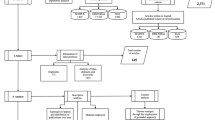Abstract
The paper argues that the ‘looking glass self’ approach to the formation of individual self-identity can also be applied to the determination of the core identity of an organization. A survey of 126 state-subsidized UK theater companies was completed to ascertain managerial opinions regarding each theater's ‘artistic identity.’ The latter was defined in terms of a theater director's evaluation of his or her theater's educational and cultural role and its fundamental ideological and philosophical orientation. Concomitantly, respondents were asked to declare their perceptions of how they believed key stakeholder groups saw their theaters' artistic identities. The replies were used to test the hypothesis that the greater the degree of congruence between a director's own opinion of his or her theater's artistic identity and the director's assumptions about how valued stakeholders interpreted the theater's artistic identity, then the lower the likelihood that the theater's artistic identity would be altered, even if the objective need for an identity change was acknowledged.
Similar content being viewed by others
Author information
Authors and Affiliations
Rights and permissions
About this article
Cite this article
Bennett, R., Kottasz, R. Construed Artistic Identity and Resistance to Identity Change in UK Theaters: An Empirical Investigation. Corp Reputation Rev 4, 223–234 (2001). https://doi.org/10.1057/palgrave.crr.1540145
Published:
Issue Date:
DOI: https://doi.org/10.1057/palgrave.crr.1540145




